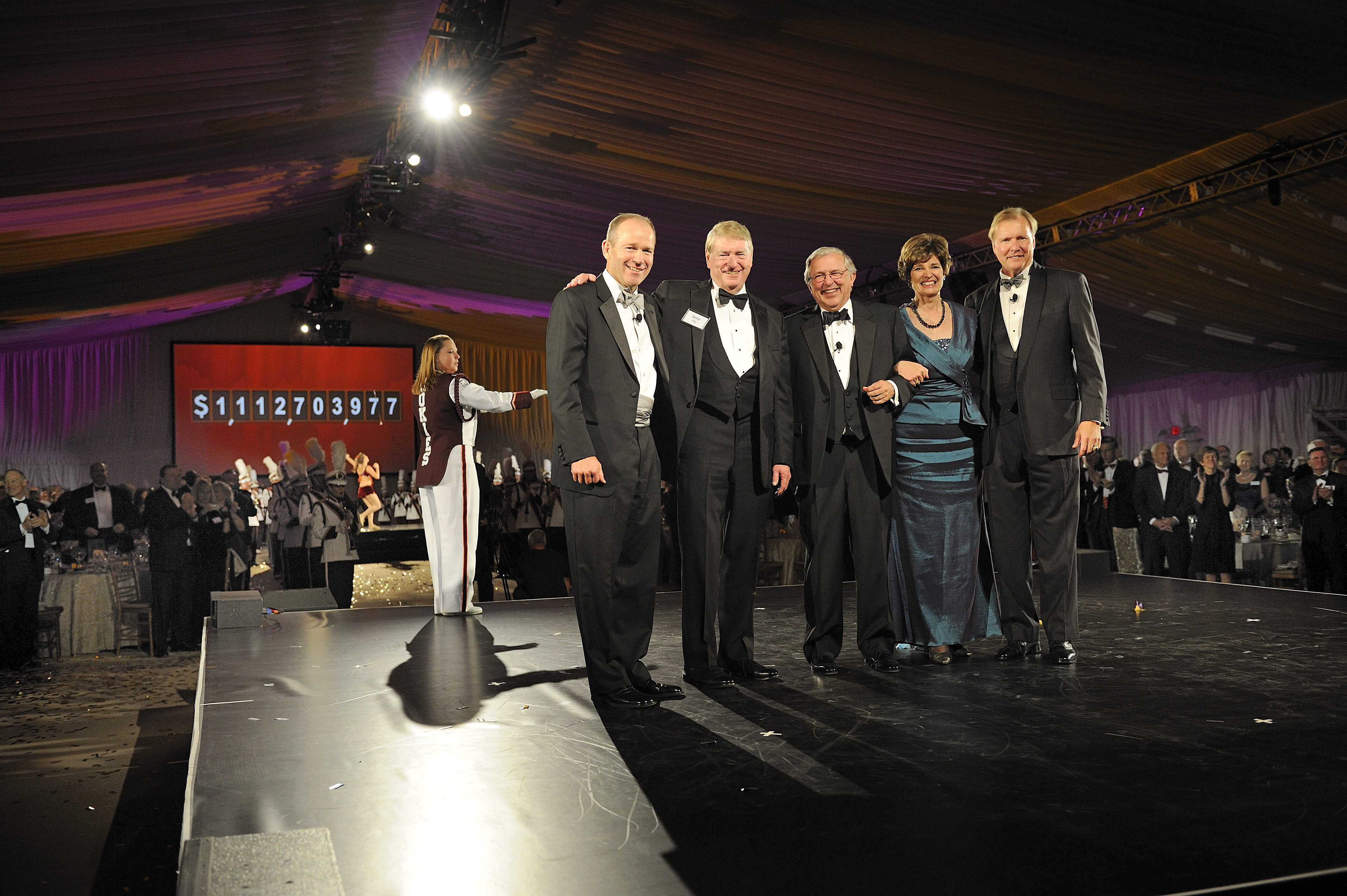$1,112,703,977 raised during The Campaign for Virginia Tech: Invent the Future

Virginia Tech President Charles W. Steger on Saturday night announced the university had exceeded the $1 billion goal of The Campaign for Virginia Tech: Invent the Future, an eight-year fundraising initiative that was supported by nearly 170,000 contributors.
The most ambitious campaign in university history -- which began July 1, 2003, and ran through June 30, 2011 -- raised $1.11 billion in outright gifts, pledge payments, or commitments of future support.
To put this historic achievement for Virginia Tech in context, the university's last comparable campaign, Making a World of Difference, which concluded in 1998, raised $337.42 million, approximately $470 million in today’s dollars.
The amount raised in the more recent campaign was announced at a closing ceremony attended by approximately 1,000 of the university's most generous supporters.
It was the last of dozens of events held on campus, coming hours after Virginia Tech for the first time in memory held a university-wide open house, during which members of the public toured numerous facilities and attended special presentations by faculty, staff, and students.
Prior to the event, Steger said the extent of generosity displayed by participants in the campaign demonstrated “a degree of love and loyalty that is exceedingly uncommon in our modern age, and a philanthropic instinct that has the capacity to make a profound impact not only on our present, but on our future.”
Twenty-seven percent of campaign commitments were designated for endowed purposes and will provide predictable income to support various causes at the university for years to come.
The university's endowment, managed by the Virginia Tech Foundation, grew by 81 percent during the campaign, thanks to gifts and investments. The endowment stood at $600.65 million as of the end of the campaign.
After spending four years in a quiet phase, during which more than $550 million was committed, the campaign was announced publicly on Oct. 20, 2007. Nearly 900 volunteers served on campaign committees, including regional committees based in nine different states and the District of Columbia.
Gene Fife, a former chairman of Goldman Sachs International who earned his bachelor’s of business administration in 1962 from what is now the Pamplin College of Business, chaired the Quiet Phase Campaign Steering Committee. The public phase’s National Campaign Steering Committee co-chairs were David Calhoun, another graduate of the business college, who earned his bachelor’s of accounting in 1979, and John Lawson, who earned his bachelor’s of geophysics in 1975 from what is now the College of Science.
“Helping to lead this campaign was a wonderful opportunity to give back to the school I love and to make a difference in the world at large by helping an institution that prepares tomorrow’s leaders,” said Lawson, president and CEO of W.M. Jordan Company.
Calhoun, chairman and CEO of the Nielsen Company, said, “As an alumnus, I appreciate how Virginia Tech prepared me to succeed in my career. As a businessman, I see tremendous value in supporting a school known for graduating exceptional people with both the technical knowledge and character traits that it takes to compete and win in our global markets.”
Elizabeth “Betsy” Flanagan, Virginia Tech’s vice president for development and university relations, said the campaign’s fundraising figures were outstanding. But numbers alone cannot truly express the scope of this accomplishment, she said.
“The real story of this campaign will be in the lives of all the students who will benefit from the hundreds of new scholarships that were created," Flanagan said before the event. "It's also a story about our ability to create world-class teaching and research facilities, due to the generous support of our alumni and friends. Thanks to them, we also can continue to attract and retain inspiring faculty through the dozens of faculty-support funds that were created during this campaign."
Dedicated to its motto, Ut Prosim (That I May Serve), Virginia Tech takes a hands-on, engaging approach to education, preparing scholars to be leaders in their fields and communities. As the commonwealth’s most comprehensive university and its leading research institution, Virginia Tech offers 240 undergraduate and graduate degree programs to more than 31,000 students and manages a research portfolio of $513 million. The university fulfills its land-grant mission of transforming knowledge to practice through technological leadership and by fueling economic growth and job creation locally, regionally, and across Virginia.








